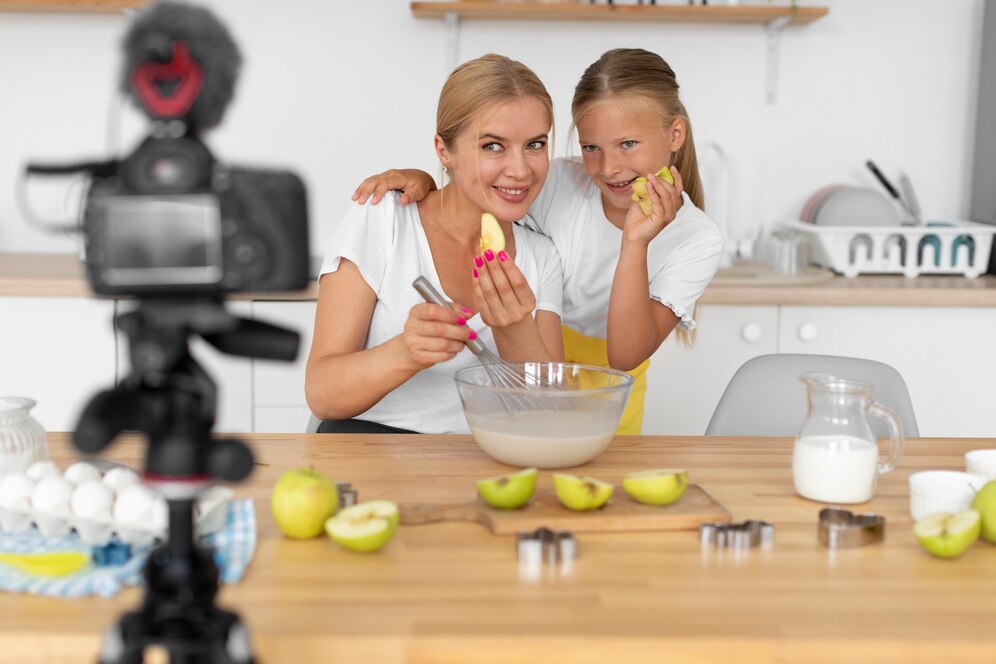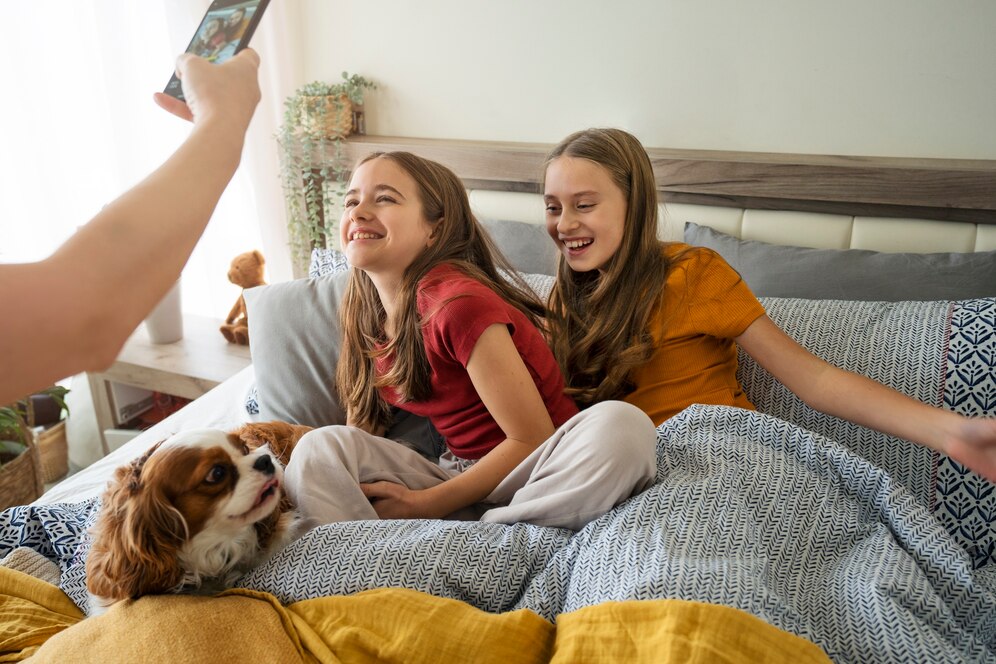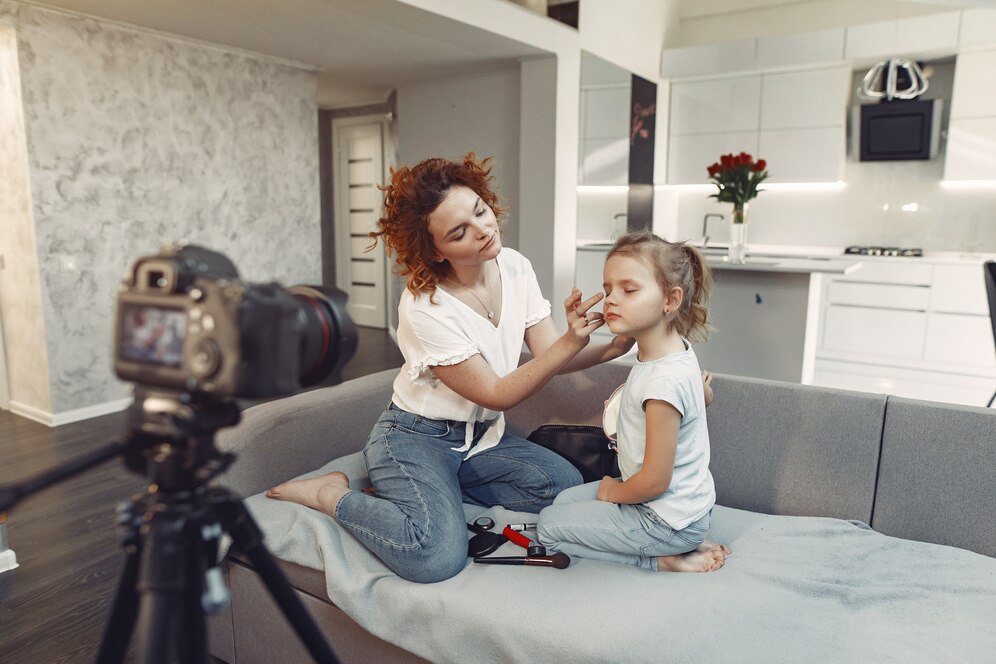By Erika Koutroumpa,
Thanks to social media, people become the stars of their own lives— the center of attention with their accounts. A new way of sharing one’s life and habits has emerged in the past few decades, that of vlogging. With the evolution of platforms such as YouTube, engaging content can prove to be a very lucrative business. A particularly popular subgenre seems to be family vlogs, with parents presenting their own and their children’s daily activities. Albeit entertaining for some, this type of media has been faced with great criticism regarding the safety of the children involved.
Limits between personal and professional life in these settings are blurry, at the expense of the children. The focus of family vlog content is the relationships between the family members and the children’s daily activities. In newer vlogger families, the younger members are being recorded from the moment they are born, and from then on, every single milestone becomes video content. YouTube videos receive monetization and brand sponsorship offers depending on the views attained, and most channels of such nature often qualify for these monetary benefits.

Children influencers are usually the product of parents’ instigation, although older children can create their own platform. For many struggling parents, family vlogging seems to be a perfect storm— a profession that involves fun for the whole family, that can financially support everyone involved, offering flexible working hours and a stress-free environment. Sponsors tend to prefer collaborating with such types of channels, as the influencers tend to have a cleaner, more wholesome image without a high risk of controversy. However, children are often the epicenter of the videos, having to maintain a recording schedule which leaves little room for age-appropriate activities. Often, they are likened to child actors, with the main difference being that vlogger children must be ready to act around the clock and seem impromptu.
Another focal aspect of this issue is the violation of the minor’s privacy by their parents. Parents are commonly seen on camera disclosing embarrassing private facts about their family, often using it as clickbait to increase viewership. However, they pay no heed to the impact it might have on their children’s social life and treatment not only from their peers but from people on the internet as well. Additionally, using a child’s likeness and name to gain advertisement revenue or sponsorships is also considered, according to some legislations, as a privacy violation, remedied by paying damages.
In the UK, there is currently no legislation regulating family vlog channels, and the UK parliament claimed in 2015 that licensing legislation relating to child performers cannot be extended to include them, since it does not cover user-generated content. The lack of regulation also means that the young person can theoretically spend limitless hours filming, unlike child actors who are restricted to working hours. If YouTube community guidelines are not being violated, underage influencers can be subjected to any type of content with no special license needed, no major investment, and no need to set up a trust fund with part of the profits.

In the US, child labor is regulated by the Fair Labor Standards Act (1938), which in the past considered underage entertainers as exempted from this legislation. The minimum age of employment is 16 years old, except for agriculture and hazardous occupations where it is 18 years old. Furthermore, another exception to the minimum age requirements is applied when the child is employed by a parent. Legal guardians are not allowed to employ minors under their custody in occupations dangerous for children or only suited for adults. Hence, based on these exceptions, child entertainers are left without protection. Additionally, according to the Communications Decency Act (CDA) (1996), YouTube cannot be held accountable for user-generated content. Apart from the abovementioned acts which apply nationwide, protection varies among states, with New York and California having the most robust legislation on the topic.
On the one hand, a parent does have the right to raise their offspring(s) as they deem fit, as per Pierce v Society of Sisters (1925) and Yoder v Wisconsin (1972). This applies, though, if the parental figure has the minor’s best interest in mind. Otherwise, termination of parental rights in favor of someone else can be the next reasonable step. Again, according to the legislation present, these “best interests” can be defined differently, but ultimately it all boils down to the minor’s safety and well-being. It is an acceptable opinion that a child needs a degree of privacy to be able to create autonomy, which is deprived when in a family vlog setting, and that vlogs may negatively affect the minor’s digital footprint, inhibiting them from securing a university or job position in the future. Hence, it can be argued that family vlogging is not in the child’s best interest.
To conclude, family vlogs are a trend that does not seem to be stopping anytime soon, with lucrative profits laying behind them for the parents. However, is it worth sacrificing the minor’s privacy and possibly subjecting them to stressful working conditions? In the US and UK legal systems, YouTube is not liable for the content produced by the family vloggers, and hence the platform does not place restrictions on content where minors are starring. This means that it is first and foremost up to the viewers to opt not to support such channels and that the policymakers should try to update child labor laws so as to keep up with the rapid advancements of social media.
References
- Family channels: violators of child privacy. undergraduate law review. Available here
- As family vloggers rack up controversies, some followers can’t quit them. The Washington Post. Available here
- We need to protect children who appear on social media: ‘Generation Tagged’ and the Youtube ‘Kidfluencer’. University of Winchester. Available here
- The Small-er Screen: YouTube Vlogging and the Unequipped Child Entertainment Labor Laws. DigitalCommons law. Available here
- Margaret Arabpour. “Lights, Camera, (Legal) Action: Expanding Child Entertainment Laws to Protect Children on Social Media”. Journal of Gender, Social Policy and the Law.




